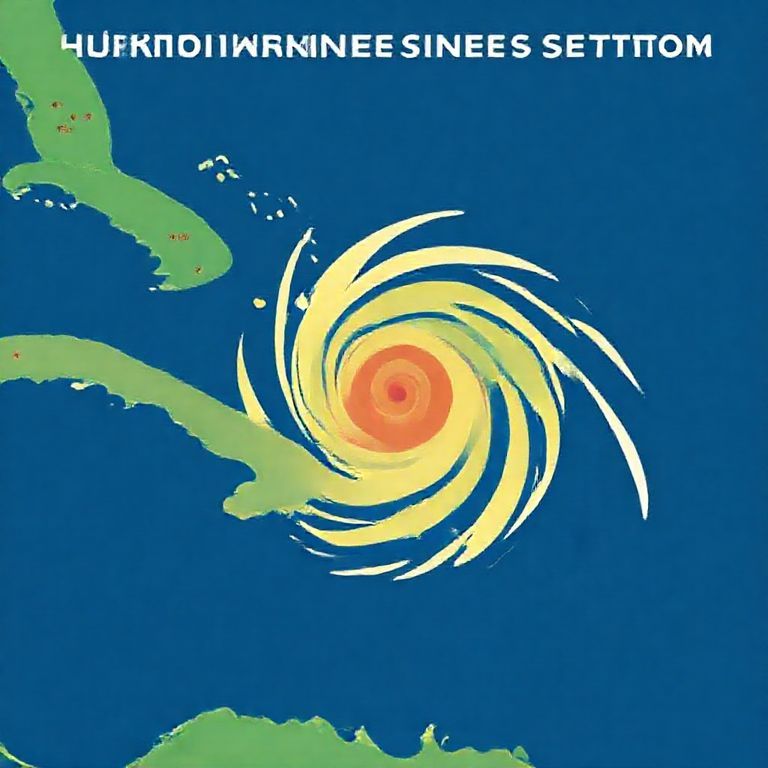Dreaming of a sun-soaked Caribbean getaway? Picture yourself lounging on pristine beaches, sipping refreshing cocktails, and soaking up the vibrant culture. But before you pack your bags, it’s essential to be aware of the Caribbean hurricane season. This period, typically spanning from June to November, brings the risk of tropical storms and hurricanes that can impact travel plans and local communities. Understanding the hurricane season and taking necessary precautions will help you make informed decisions and enjoy a safe and unforgettable vacation.
This guide provides you with the crucial information you need to navigate the Caribbean hurricane season. We’ll cover the timing, potential impacts, ways to stay informed, and tips for traveling safely during this period, ensuring you can plan your trip with confidence and peace of mind.
Understanding the Caribbean Hurricane Season
The Atlantic hurricane season officially runs from June 1st to November 30th. The peak months are typically August, September, and October, when sea surface temperatures are at their warmest. These warm waters provide the energy that fuels the formation and intensification of tropical cyclones, leading to a higher probability of hurricane development in the Caribbean region.
Why the Caribbean is Vulnerable
The Caribbean’s geographic location makes it particularly susceptible to hurricanes. Situated in the path of many tropical disturbances that develop off the coast of Africa, the islands are frequently impacted by these powerful storms. The warm, humid air and favorable atmospheric conditions contribute to the development and intensification of hurricanes as they move westward across the Atlantic.
Historical Data and Patterns
Analyzing historical hurricane data reveals patterns that help us understand the frequency and intensity of storms in different parts of the Caribbean. While some islands are more prone to direct hits than others, the entire region faces a potential threat during hurricane season. It’s important to remember that predicting the exact path and intensity of a hurricane is challenging, but meteorologists use sophisticated models to provide forecasts and warnings.
Potential Impacts of Hurricanes
Hurricanes can bring a variety of impacts to the Caribbean, ranging from minor inconveniences to devastating consequences. Understanding these potential impacts is crucial for preparing for and responding to these storms effectively.
Strong Winds and Storm Surge
Hurricanes are characterized by extremely strong winds that can cause widespread damage to buildings, infrastructure, and vegetation. Storm surge, an abnormal rise in sea level caused by a hurricane’s winds pushing water onshore, is one of the most dangerous aspects of these storms. It can inundate coastal areas, causing significant flooding and erosion.
Heavy Rainfall and Flooding
Hurricanes often bring torrential rainfall, leading to widespread flooding, especially in low-lying areas and mountainous regions. Flash floods can occur rapidly, posing a significant threat to life and property. Landslides and mudslides are also common in areas with steep slopes.
Disruption to Travel and Infrastructure
- Airports and seaports may close, disrupting travel plans and supply chains.
- Power outages are common, affecting homes, businesses, and essential services.
- Roads may become impassable due to flooding or debris, limiting access to affected areas.
Staying Informed and Prepared
Staying informed about potential weather threats is paramount during hurricane season. Monitoring forecasts and warnings from reliable sources allows you to make timely decisions and take appropriate precautions.
Reliable Sources for Information
Several organizations provide accurate and up-to-date information about hurricanes:
- National Hurricane Center (NHC): The NHC provides official forecasts, warnings, and advisories for the Atlantic and Eastern Pacific basins.
- Local Weather Authorities: Follow your local weather channels and websites for specific information and guidance relevant to your location.
- Reputable Weather Apps: Utilize weather apps that provide real-time updates and alerts on your mobile device.
Creating a Hurricane Preparedness Plan
Developing a hurricane preparedness plan is essential for protecting yourself, your family, and your property. Your plan should include:
- Evacuation Route: Identify your evacuation route and have a plan for where you will go if you need to evacuate.
- Emergency Supplies: Gather essential supplies such as food, water, medications, flashlights, batteries, and a first-aid kit.
- Communication Plan: Establish a communication plan with family members and have a designated meeting place in case you get separated.
Tips for Traveling Safely During Hurricane Season
If you’re planning a trip to the Caribbean during hurricane season, consider these tips to minimize risk and maximize your safety.
Travel Insurance and Cancellation Policies
Purchase comprehensive travel insurance that covers trip cancellations, interruptions, and medical emergencies. Review the cancellation policies of your airline, hotel, and tour operators to understand your options in case of a hurricane.
Flexibility in Travel Plans
Be prepared to adjust your travel plans if a hurricane threatens your destination. Consider booking flights and accommodations that allow for flexibility in case you need to change your dates or location.
Staying Aware While Traveling
Monitor weather forecasts and warnings regularly during your trip. Familiarize yourself with the local emergency procedures and evacuation routes. Heed the advice of local authorities and follow their instructions in case of a hurricane.
Conclusion
While the Caribbean hurricane season poses a real threat, being informed and prepared can significantly reduce the risks. By understanding the potential impacts of hurricanes, staying updated on weather forecasts, and taking necessary precautions, you can still enjoy a memorable and safe vacation. Remember that flexibility is key, and always prioritize your safety and well-being. Don’t let the hurricane season deter you from experiencing the beauty and charm of the Caribbean, just be sure to plan wisely and stay vigilant.
Ready to explore more about Caribbean travel and culture? Check out our other articles on Life in Mexico for insider tips and inspiring stories!
IMAGE: A vibrant Caribbean beach scene under a slightly cloudy sky. Turquoise water gently laps the shore. In the distance, dark storm clouds are gathering on the horizon, creating a dramatic contrast with the sunny foreground. Palm trees sway in the breeze. The overall mood is a blend of tropical paradise and impending weather, captured in a realistic and slightly stylized digital painting.


